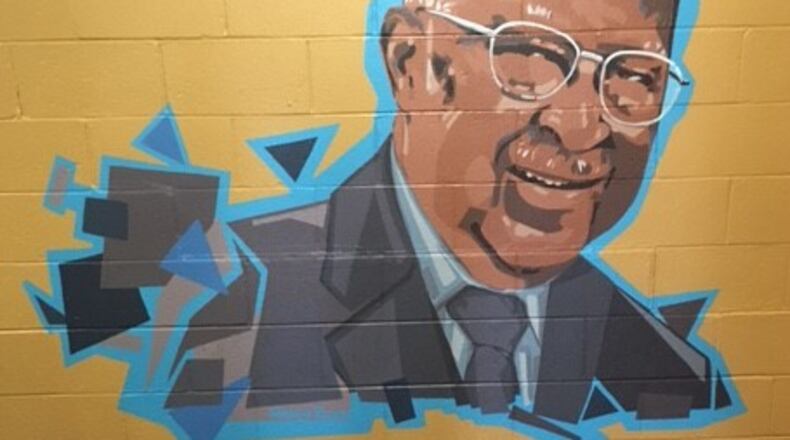It’s a tough task.
Dayton has the third-highest poverty rate in the country at 30.57%, trailing only Detroit (35.02%) and Cleveland (32.65%) among cities with a population of more than 100,000 residents.
Mckinley’s 45402 ZIP code tells an even bleaker tale. It has the lowest median household income in the city, at $26,550. That’s about half the median income in Montgomery County, according to Census Bureau statistics.
The ZIP code’s 8.3% jobless rate — tied with zip code 45404 for the city’s worst — sits far above Ohio’s 5.2%. One in five families who live in 45402 have no one working in the household. One in three live in poverty and receive public assistance, according to TownCharts, which aggregates data from a number of sources, including the Census Bureau.
Against that backdrop, Matthews began thinking and having discussions about how Mckinley could help a community in need. His vision amounts to this:
“We want to be in the business of serving humanity,” Matthews said. “We are in the business of alleviating despair.”
For guidance, he leaned on John E. Moore, Sr., a Dayton icon renowned for his ability to quietly bring people together to solve problems. Moore, a Mckinley member, passed away earlier this year at the age of 97 and Matthews called him, “a larger-than-life figure in my life.
“Mr. Moore was instrumental in making us mindful that we are not here to serve ourselves, but there’s a community that is in dire need of basic services to be restored to their basic humanity,” Matthews said in the rhythmic enunciation of a preacher. “And it’s very hard being in the (third) poorest city in America and not be compelled to think about the ways that you can help them.”
Four years ago, Matthews launched the Dayton Equity Center, a non-profit housed at Mckinley that focuses on four areas: education and job opportunities, food security and working with the resettlement population. Its website reads, “Creating initiatives and building coalitions that restore communities.”
The community has already seen the fruits of those efforts. Each week, between 150 and 200 residents of DeSoto Bass and Hilltop apartments receive food through the center’s partnership with the Dayton Food Bank.
The center runs an after-school program with 35 students at Roosevelt Elementary that encompasses tutoring, activities, meditation and more.
Ashton Dupler, who runs the equity center’s day-to-day operation, said, “When you know these kids are facing adversity on a number of levels, it is incredible to see them rise. When they see their own potential, that is exhilarating.”
The center, Matthews said, will also soon become the only church-based program in Ohio (and maybe the country) that offers training opportunities for residents who want to become certified forklift drivers, which will hopefully lead to better-paying jobs for residents. In Ohio, the median wage for forklift drivers is $37,459, substantially more than the current household median income in 45402.
The center’s programs use grants and fundraising to pay for their programs. Matthews serves as the CEO.
Lots of churches help their communities, but the difference here can be measured in the depth of the despair. Poverty here runs deeper than a newly dug well.
But Matthews and his team believe they will make a difference. I hope he’s right.
“We like where we’re going to be in about six to eight months from now,” Matthews said, “to be a major force of good in the area that needs it the most.”
Ray Marcano is a long-time journalist whose column appears every Sunday on these pages. He can be reached at raymarcanoddn@gmail.com.
About the Author


